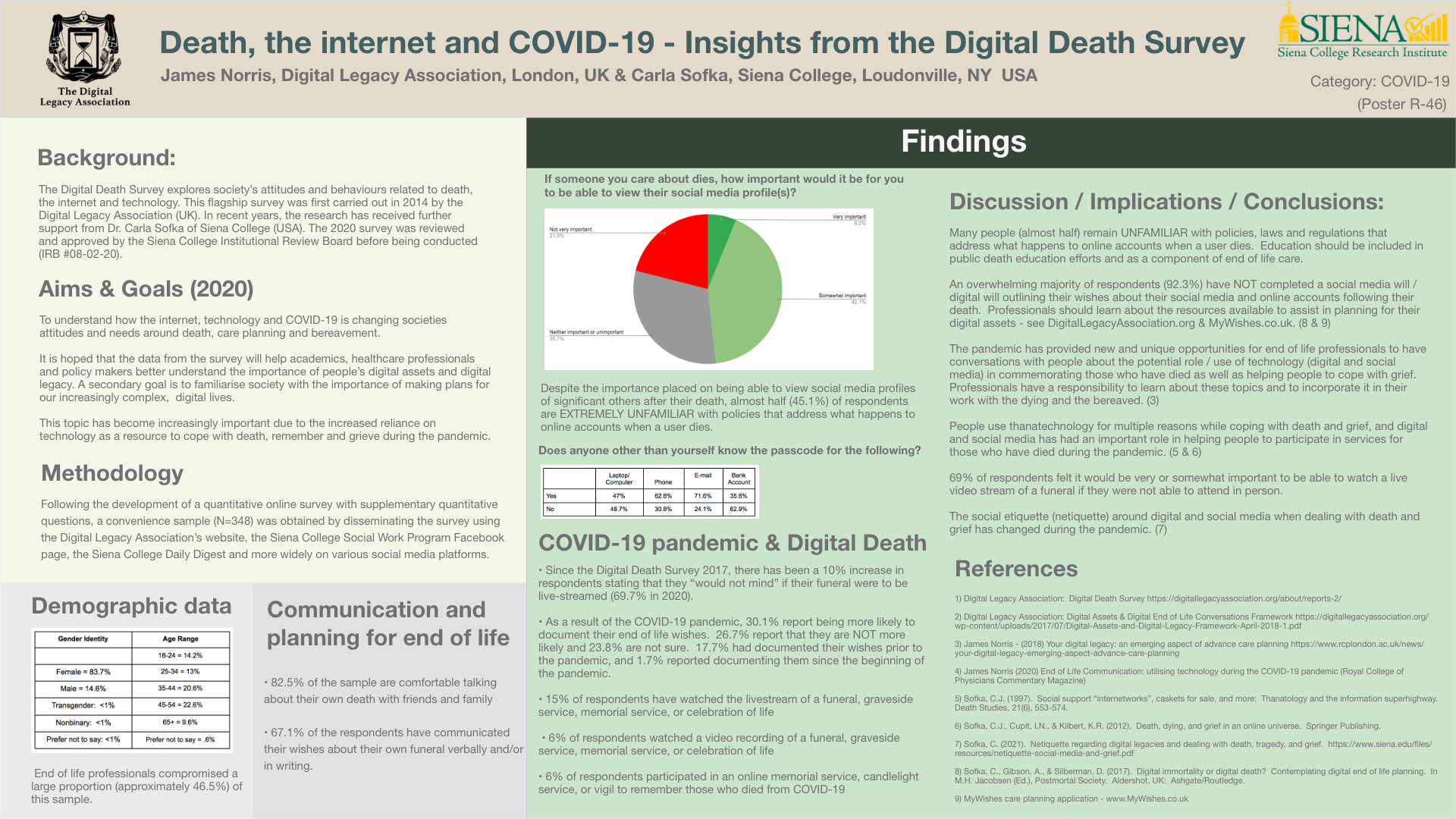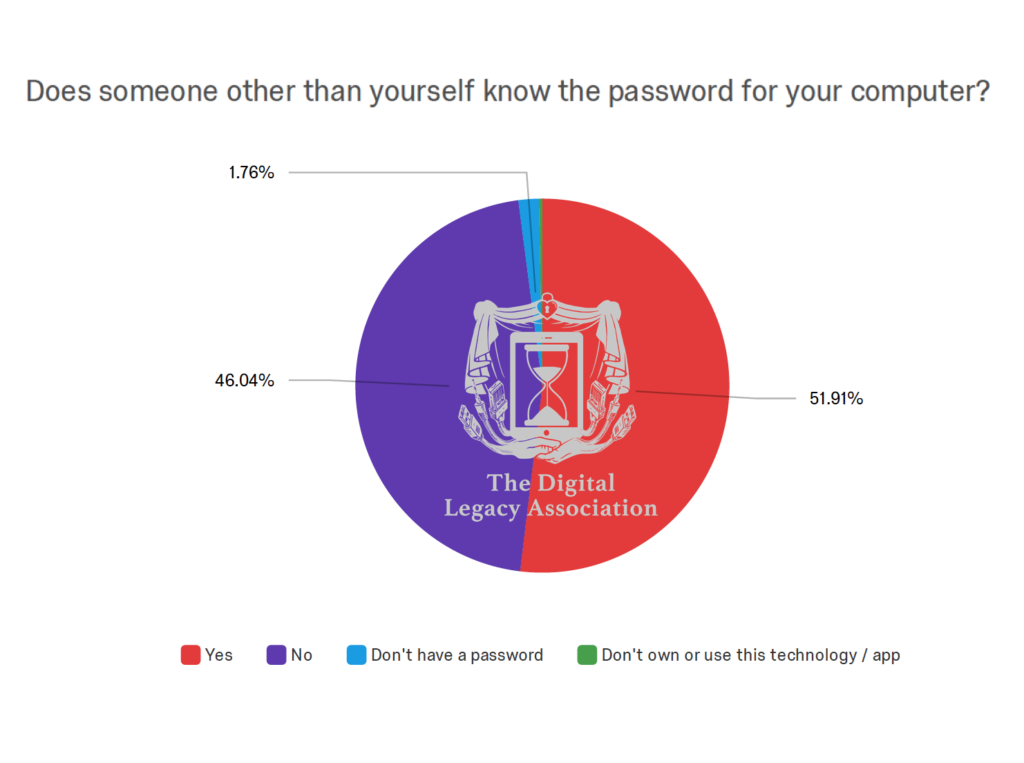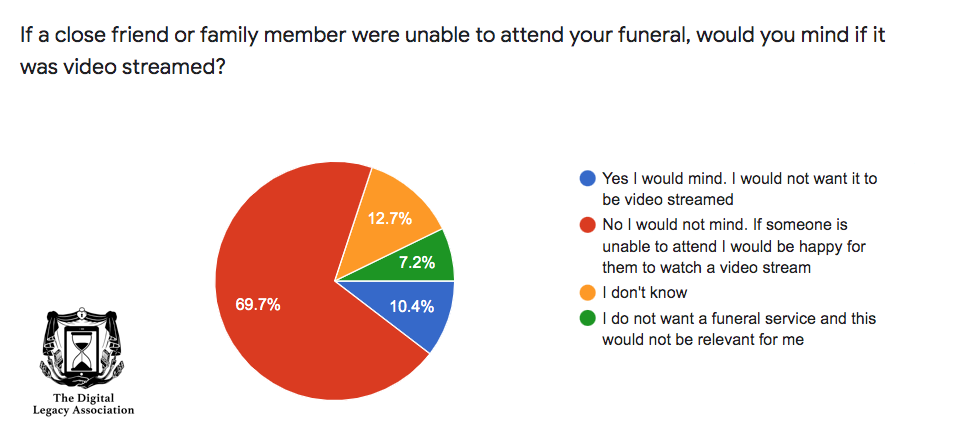www.DigitalLegacyAssociation.org
The internet and communication technologies have changed many things. It has changed the ways in which we interact with one another, the ways in which we work and it is now having an increasing influence and importance in the ways in which we plan for death and remember our loved ones. COVID-19 and social distancing measures have further sped up the acceleration of change with the normalisation of funerals being live streamed, virtual memorials and grieving for loved ones while using internet enabled devices.
The purpose of the Digital Death Survey is to better understand how the internet and technology are changing societies’ attitudes and needs around death, care planning and bereavement. This flagship survey was first carried out in 2014 by the Digital Legacy Association (UK). In recent years, the research has received further support from Dr. Carla Sofka of Siena College (USA). A secondary purpose of the digital death survey is to educate participants about this emerging area.
Once the Digital Death Survey data has been collected and anonymised, the data and a report will be made available for professionals, academics and those interested in subjects. The report will help academics, healthcare professionals and policy makers better understand the importance of people’s digital assets and digital legacy. A secondary goal of the survey is to familiarise society with the importance of making plans for our increasingly complex, digital lives and make appropriate plans for themselves, their possessions and those they care about.
The Digital Death Survey 2022 can be viewed and completed on: https://siena.qualtrics.com/jfe/form/SV_0CIxGjvZACAo13E

Figure 1: Digital Death Survey 2020 Poster
Figure 2: Survey results – Computer password
Figure 3: Survey results – Funeral streaming
The Digital Legacy Association is the global, community organisation with a focus of raising awareness around the importance of digital assets planning and digital legacy safeguarding. This is achieved by supporting professionals, industry and the general public.
Siena College is a learning community advancing the ideals of a liberal arts education. The Social Work department is led by Professor Carla Sofka, a published author and thought leader in areas relating to death, bereavement and the internet.
Information for webmasters
The Digital Death Survey has been reviewed and approved by Siena College’s Institutional Review Board (IRB) which ensures the protection of human participants in a research study. Any USA organisation that receives federal funding to conduct research with human participants is required to establish an IRB and to review and approve studies prior to collection of research data. The IRB confirmation document (IRB #02-03-22) can be viewed here.
Quotes
“Preparing for death and the ways in which we are remembered is being disrupted and reimagined by society. The internet and mainstream technologies are the catalyst.” – James Norris
“We are delighted to announce that this year’s Digital Death Survey is now live. We look forward to sharing the results with participants and all those interested in this emerging and increasingly important field.” – James Norris
“It is important that we make plans for both our ‘physical death’ and our ‘digital death’. A woven thread of memories, financial assets and personal communications are increasingly becoming intertwined within a plethora of password protected, online accounts.” – James Norris
“Digital and social media have changed how society deals with the end of life and grief. The Digital Death Survey will not only educate participants about the need to plan for their digital legacies but will inform us about how technology is being used as a result of the COVID-19 pandemic.” – Carla Sofka
“Digital and social media have played a significant role in helping people to say goodbye to loved ones during the pandemic. Understanding the pros and cons of its use during times of impending death and grief is crucial.” – Carla Sofka
“In a society where technology plays an important role in daily life, planning for one’s digital legacy is equally important to planning for one’s health care at the end of life.” – Carla Sofka
Press contact:
- James Norris (UK): 07868 823055. hello@digitallegacyassociation.org
- Sofka (USA) 518-786-5046. csofka@siena.edu


